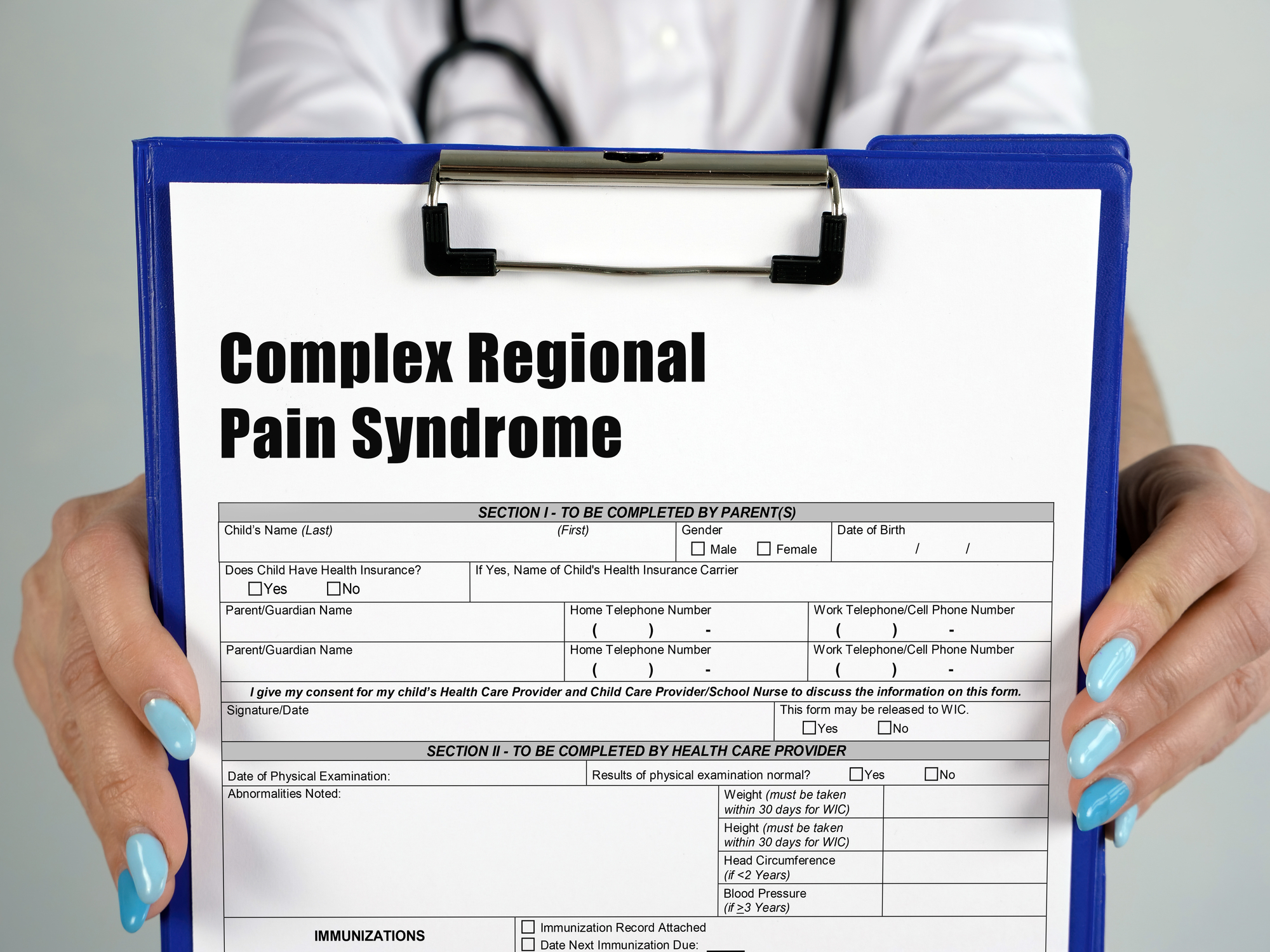Complex Regional Pain Syndrome CRPS Workers’ Compensation Settlement

If you sustained an injury at work that ordinarily heals quite rapidly but left you in excruciating pain after the healing process was supposed to be over, you may be suffering from a more serious disorder called Complex Regional Pain Syndrome or (CRPS).
What is Complex Regional Pain Syndrome?
Complex Regional Pain Syndrome is also referred to as Reflex Sympathetic Dystrophy (RSD). CRPS is a physical disability that affects roughly 200,000 Americans annually. Although CRPS can affect any area of the body, sufferers typically experience symptoms in their arms and legs.
CRPS results from a physical injury such as a fracture, crush, or amputation. This diagnosis can sometimes be the outcome of a relatively minor injury, such as a sprained ankle.
Complex regional pain syndrome progresses over time and results in chronic, burning pain and autonomic nervous system dysfunction. In addition to physical suffering, CRPS may lead to emotional distress and financial difficulties.
Unfortunately, not many doctors are aware of or have a good understanding of CRPS. And this makes it challenging to get the right diagnosis or therapy.
A physical examination and testing of the sympathetic nervous system are often used to make a diagnosis. Swelling, sensitivity to touch, temperature or color changes, motor dysfunction, and changes in sweating are typical symptoms. Avoiding utilizing the injured limb might also result in tissue wasting or atrophy of that area of the body.
Is Complex Regional Pain Syndrome covered by Workers’ Compensation?
You may be entitled to workers’ compensation benefits if you have been hurt at work and the injury has left you with CRPS in the affected limb or area. If you have CRPS and your job has made the disease worse, you can potentially be eligible for workers’ compensation benefits.
There are several difficulties with CRPS and workers’ compensation. One problem is that because this condition is less common, patients sometimes take longer to receive a proper diagnosis. The disease might also come and go, resulting in an ineligibility decision. There are times when employers and insurance companies do not believe injured workers because there are no apparent outward injuries associated with this medical condition.
However, you may be eligible for a workers’ compensation settlement for your CRPS if you are unable to work as a result of your accident, if your condition is work-related, and if you require medical benefits and other assistance for your disability.
Legal Aspects of CRPS Workers’ Compensation Claims
You may be able to get workers’ compensation benefits if you are hurt in an accident that occurred while you were working and meet certain procedural conditions. These include submitting a benefits claim within the allotted statutes of limitations and giving the employer timely notice.
However, if another illness or accident caused your medical condition and incapacity or if you are unable to demonstrate its cause, the insurer will refuse to make payments.
Therefore, proving a specific work-related incident which led to a structural damage in the body is the first step in obtaining workers’ compensation for CRPS. You must demonstrate that the structural change took place in order to provide the foundation for CRPS, no matter how minor.
You should then ask your attending physician, neurologist, orthopedic surgeon, or physical therapist if your complex regional pain syndrome was caused by or impacted by the work-related injury.
You can help establish your case by writing down in a narrative style, how the workplace trauma first caused your CRPS. A doctrine called Compensable Consequence should, in theory, make the workers compensation board hold an employer accountable for medical expenses, lost wages, and permanent disability resulting from CRPS, even if the company made just a minor contribution to the disease. But theory rarely meets practice here, so have a knowledgeable attorney with you throughout the claim process.
Keep in mind, too, that the workers’ compensation system does not pay damages for pain and suffering. As a result, a workers compensation payout for CRPS may be worth far less than a CRPS claim brought under negligence statutes, which allow for these damages.
Contact an Experienced Virginia Workers Compensation Attorney
Our lawyers are committed to seeking justice for all workplace injury victims, including those who experience the incapacitating symptoms of CRPS. Call Slominski Law at (434) 384-9400 in Lynchburg or (540) 554-3762 in Roanoke for more information about your right to submit a workers’ compensation claim.





